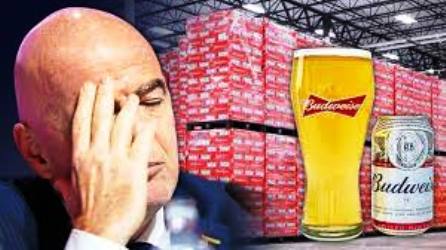As a result of this policy, alcoholic beverages such as beer are only available in fan zones after 7 pm and in officially licensed entertainment venues
It is officially confirmed that Qatari government has banned the sale of beer in eight stadiums that will be used as venues for the 2022 World Cup matches on Friday, 18 November. The ban shocked many football fans as it was issued just two days before the opening match.
The policy prohibiting the sale of alcoholic beverages within the stadium’s perimeter has been confirmed by FIFA.
As a result of this policy, alcoholic beverages such as beer are only available in fan zones after 7 pm and in officially licensed entertainment venues.
Qatar had previously agreed to FIFA’s terms of selling alcohol in stadiums when it offered to host the world cup. But the details were only released in September, 11 weeks before the first kickoff, indicating how difficult the negotiations have been.
FIFA has reportedly said in a statement that the decision to remove the beer-selling points from the perimeter of the 2022 World Cup stadiums was taken after discussions with the host authorities.
However, FIFA assured that sales of Bud Zero, an alcohol-free beer, would not be disrupted and would remain available in eight stadiums for 64 matches.
Qatar’s policy of banning alcoholic beverages around its stadium has forced FIFA to deal with Anheuser-Busch InBev, the company that owns Budweiser, which has a fantastic contract worth $75 million with FIFA at this year’s World Cup.
When news of the alcohol ban broke on Friday, the official Budweiser Twitter account tweeted, “Well this is awkward,” then quickly deleted it.
It is certainly awkward for AB Inbev, the main sponsors of the World Cup, who are planning to sell Bud Regular in response to the ban, especially when their beer tent was moved to a less visible spot last week.
According to The New York Times, staff members who were aware of the changes beforehand were told that the move was taken to follow safety advice.
But it is believed to have come from Sheikh Jassim bin Hamad bin Khalifa al-Thani, the brother of Qatar’s ruling emir, who is also the most active in tournament planning, suggesting it was non-negotiable.
Qatar has been grappling with the subject of alcohol since the tiny Gulf nation was awarded the right to host the World Cup in 2010. Alcohol is available in the country, but its sale is tightly controlled.
Qatar’s efforts to ban the sale of alcohol around stadiums during the 2022 World Cup are deserved to be commended.
It shows its assertiveness as a Muslim country that is open to progress but still adheres to its Islamic principles.


